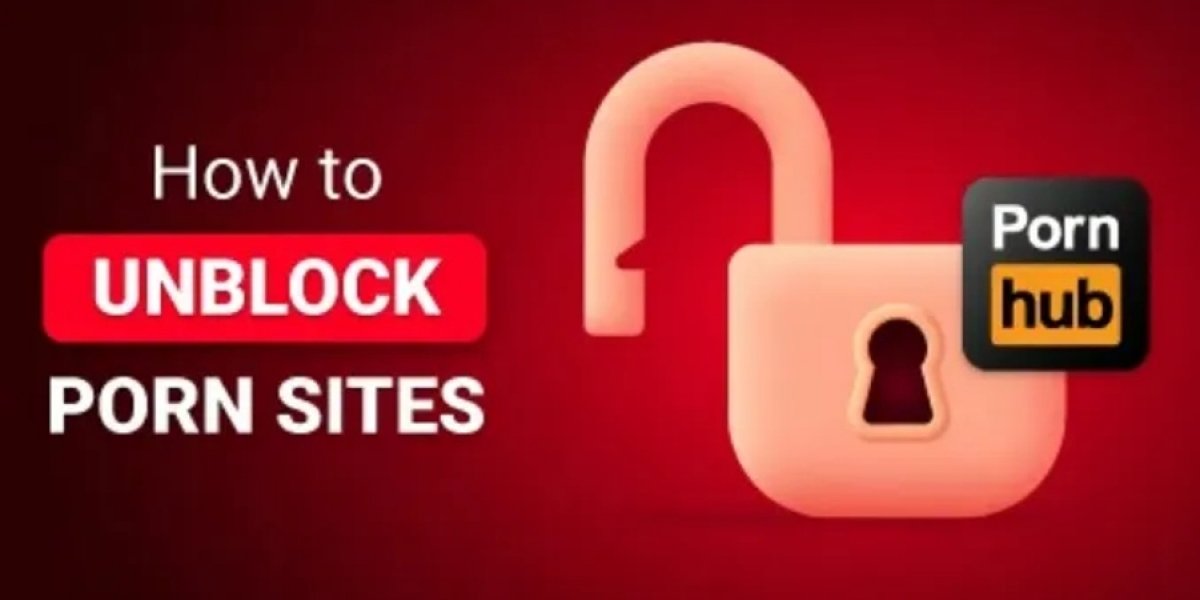Picture this: You're at a bustling networking event, exchanging contact information with potential clients and partners. You reach into your pocket, only to realize you've run out of business cards—or worse, you forgot them entirely. Sound familiar? If you've ever found yourself in this awkward situation, it's time to consider a modern solution that fits right in your smartphone.
Digital business cards are revolutionizing the way professionals network and share their contact information. Gone are the days of fumbling through stacks of paper cards or typing contact details manually into your phone. With a simple tap or scan, you can instantly share comprehensive professional information that goes far beyond what a traditional card can offer.
Whether you're an entrepreneur, sales professional, freelancer, or corporate executive, making the switch to digital business cards could be one of the smartest moves for your professional brand. Let's explore seven compelling reasons why more professionals are ditching paper cards and embracing this innovative networking tool.
1. Never Run Out of Cards Again
Remember that sinking feeling when someone asks for your card and you've handed out your last one? With digital business cards, that problem becomes a thing of the past. Your contact information lives on your smartphone, tablet, or smartwatch, meaning you always have unlimited cards available whenever you need them.
This constant availability is particularly valuable during unexpected networking opportunities. Whether you bump into a potential client at a coffee shop, meet someone interesting on a flight, or attend a last-minute conference, you'll always be prepared to share your professional details. There's no need to rush to the print shop before important events or worry about running low on inventory. Your digital card is always there, ready to be shared at a moment's notice.
2. Update Your Information Instantly
Life moves fast, and so does your career. You might change phone numbers, switch email addresses, move offices, or earn new certifications. With traditional paper business cards, any change means your existing cards become outdated—and potentially thousands of dollars worth of printed materials end up in the recycling bin.
Digital business cards solve this problem elegantly. When you update your information on your digital card platform, everyone who received your card automatically sees the updated details. It's like having a living, breathing representation of your professional identity that evolves with you. This real-time updating capability ensures your network always has access to your current contact information, reducing missed opportunities and maintaining your professional image. Plus, you won't waste money on reprinting cards every time something changes in your career.
3. Stand Out with Interactive Features
Traditional paper cards are limited to static information—your name, title, phone number, and maybe a logo. Digital business cards, however, transform how you present yourself professionally. They're interactive, engaging, and memorable in ways that paper simply cannot match.
With Digital Business Card UK, you can include clickable links to your LinkedIn profile, portfolio website, YouTube channel, or social media accounts. You can embed video introductions that let your personality shine through, showcase product demonstrations, or include customer testimonials. Some platforms even allow you to add your calendar for easy appointment scheduling or integrate payment options for service providers. This multimedia approach doesn't just share your contact information—it tells your professional story in a dynamic, compelling way that leaves a lasting impression.
4. Eco-Friendly and Sustainable Choice
In an era where sustainability matters more than ever, switching to digital business cards represents a meaningful step toward reducing your environmental footprint. The traditional business card industry consumes millions of trees annually, and most paper cards end up in landfills within a week of being received.
By choosing digital alternatives, you're eliminating paper waste, reducing the carbon emissions associated with printing and shipping, and decreasing the use of inks and chemicals. For environmentally conscious professionals and companies committed to corporate social responsibility, this shift aligns your networking practices with your values. It's a talking point that resonates with like-minded professionals and demonstrates your commitment to sustainable business practices. Many clients and partners appreciate working with professionals who prioritize environmental stewardship, making this an ethical choice that can also enhance your professional reputation.
5. Cost-Effective in the Long Run
While there might be a small investment in a digital business card platform, the long-term savings are substantial. Consider the recurring costs of traditional cards: graphic design, printing, shipping, and reprinting whenever information changes or you run out. For active networkers, these expenses can easily run into hundreds or thousands of dollars annually.
Digital business cards require minimal ongoing costs. Many platforms offer free basic versions, while premium subscriptions typically cost less than a single order of quality printed cards. You're paying once for unlimited cards that last indefinitely. For businesses with multiple employees, the savings multiply significantly. Companies can create standardized digital cards for their entire team, ensuring brand consistency while eliminating the administrative burden and expense of managing physical card inventory. The return on investment becomes clear quickly, especially for sales teams and businesses that network frequently.
6. Enhanced Analytics and Lead Tracking
Here's something traditional paper cards could never offer: data. Digital business cards provide valuable insights into how recipients engage with your information. You can track when someone views your card, which links they click, how many times they've accessed your details, and even their geographic location.
This analytics capability transforms networking from a shot-in-the-dark activity into a strategic business development tool. You'll know exactly which connections are most interested in your services, allowing you to prioritize follow-ups effectively. Some platforms integrate with customer relationship management (CRM) systems, automatically adding new contacts to your database and triggering follow-up sequences. This seamless integration between networking and lead management helps you convert connections into clients more efficiently. For sales professionals, these insights are invaluable for understanding prospect behavior and timing your outreach perfectly.
7. Contactless and Hygienic Sharing
The global pandemic fundamentally changed how we interact in professional settings, and these changes are here to stay. Physical contact and sharing objects became concerns, making the traditional handshake-and-card-exchange feel outdated and potentially risky.
Digital business cards offer completely contactless sharing options that feel natural in today's environment. You can share via QR code scanning, NFC technology (near-field communication), text message, email, or through messaging apps like WhatsApp and LinkedIn. Recipients don't need to download an app in many cases—they simply scan or click and instantly receive your contact information. This frictionless, hygienic approach to networking not only addresses health concerns but also feels more modern and tech-savvy. It positions you as a forward-thinking professional who embraces innovation and considers the comfort and safety of others.
Making the Transition: What to Consider
Switching to digital business cards is simpler than you might think, but there are a few factors to consider for a smooth transition. First, choose a platform that aligns with your needs and budget. Popular options include HiHello, Mobilo, CamCard, Linq, and many others, each offering different features and pricing structures.
Consider your industry and networking environment. While digital cards work brilliantly in tech-forward industries and urban professional settings, you might want to keep a small supply of traditional cards for situations where digital sharing isn't practical—rural areas with limited connectivity, older professionals less comfortable with technology, or formal events with specific traditions.
Think about your personal brand and how you want to be perceived. Your digital business card should reflect your professional identity with appropriate design, colors, and content. Take advantage of the multimedia capabilities, but don't overwhelm recipients with too much information. The goal is to be memorable and accessible, not flashy for the sake of it.
Finally, practice sharing your digital card before you need it in a real networking situation. Familiarize yourself with the various sharing methods so you can confidently present your card regardless of the circumstances. The more comfortable you are with the technology, the smoother and more professional your networking interactions will be.
The Future of Professional Networking
The shift toward digital business cards isn't just a temporary trend—it represents the future of professional networking. As technology continues to integrate into every aspect of business life, tools that enhance efficiency, sustainability, and connectivity will become standard rather than exceptional.
Digital business cards fit perfectly into the broader ecosystem of digital professional tools. They complement your LinkedIn profile, online portfolio, and professional website, creating a cohesive digital presence that's accessible wherever and whenever someone wants to connect with you. As augmented reality, virtual reality, and metaverse platforms evolve, digital business cards will likely play a role in these emerging networking spaces as well.
The professionals who adopt these technologies early position themselves as innovators and forward-thinkers. They demonstrate adaptability and technological fluency—qualities highly valued in today's rapidly changing business landscape. By making the switch now, you're not just solving today's networking challenges; you're preparing for tomorrow's professional environment.
Frequently Asked Questions
Do people still use business cards in 2025?
Yes, business cards remain relevant, but the format is evolving. While traditional paper cards are still common in certain industries and regions, digital business cards are rapidly gaining popularity. Many professionals now use a hybrid approach, maintaining a small supply of physical cards while primarily relying on digital versions. The networking function remains essential; the medium is simply adapting to modern technology and expectations.
Are digital business cards professional?
Absolutely. Digital business cards are increasingly recognized as professional, innovative, and practical. They're used by executives, entrepreneurs, and professionals across industries worldwide. In tech-forward sectors, having only paper cards might actually seem outdated. The key is choosing a quality platform and designing your digital card to reflect your professional brand appropriately. When executed well, digital cards enhance rather than diminish your professional image.
What happens if someone doesn't have a smartphone?
While smartphone adoption is widespread, you can still accommodate those without them. Most digital business card platforms allow you to share contact information via email or text message to basic phones. Additionally, many platforms let you print QR codes on small physical cards that recipients can scan later. For comprehensive preparedness, keeping a few traditional cards as backup ensures you're never caught without a way to share your information.
Can digital business cards work offline?
Many digital business card platforms offer offline functionality. NFC-enabled cards can transfer information without internet connectivity, and some apps allow you to view and share previously loaded cards offline. However, features like real-time updates and analytics require internet access. It's worth checking your chosen platform's offline capabilities if you frequently network in areas with limited connectivity.
How secure are digital business cards?
Reputable digital business card platforms implement strong security measures, including data encryption and secure servers. Unlike physical cards that can be lost or stolen with no trace, digital platforms often include security features like password protection and the ability to remotely deactivate shared cards if needed. However, as with any digital tool, it's important to choose established platforms with good security reputations and to follow best practices for password management and data protection.
Will digital business cards replace paper cards completely?
While digital cards are growing in popularity, complete replacement is unlikely in the near term. Certain situations, cultural contexts, and personal preferences will continue to favor traditional cards. The more likely scenario is coexistence, with professionals choosing the most appropriate format for each networking situation. The trend, however, clearly favors digital solutions for their flexibility, sustainability, and enhanced functionality.
The networking landscape is evolving, and digital business cards represent a smart, sustainable, and strategic way to connect in our increasingly digital world. By embracing this technology, you're not just keeping up with the times—you're positioning yourself at the forefront of professional innovation. Whether you make a complete switch or adopt a hybrid approach, exploring digital business cards could be the upgrade your professional networking has been waiting for.








